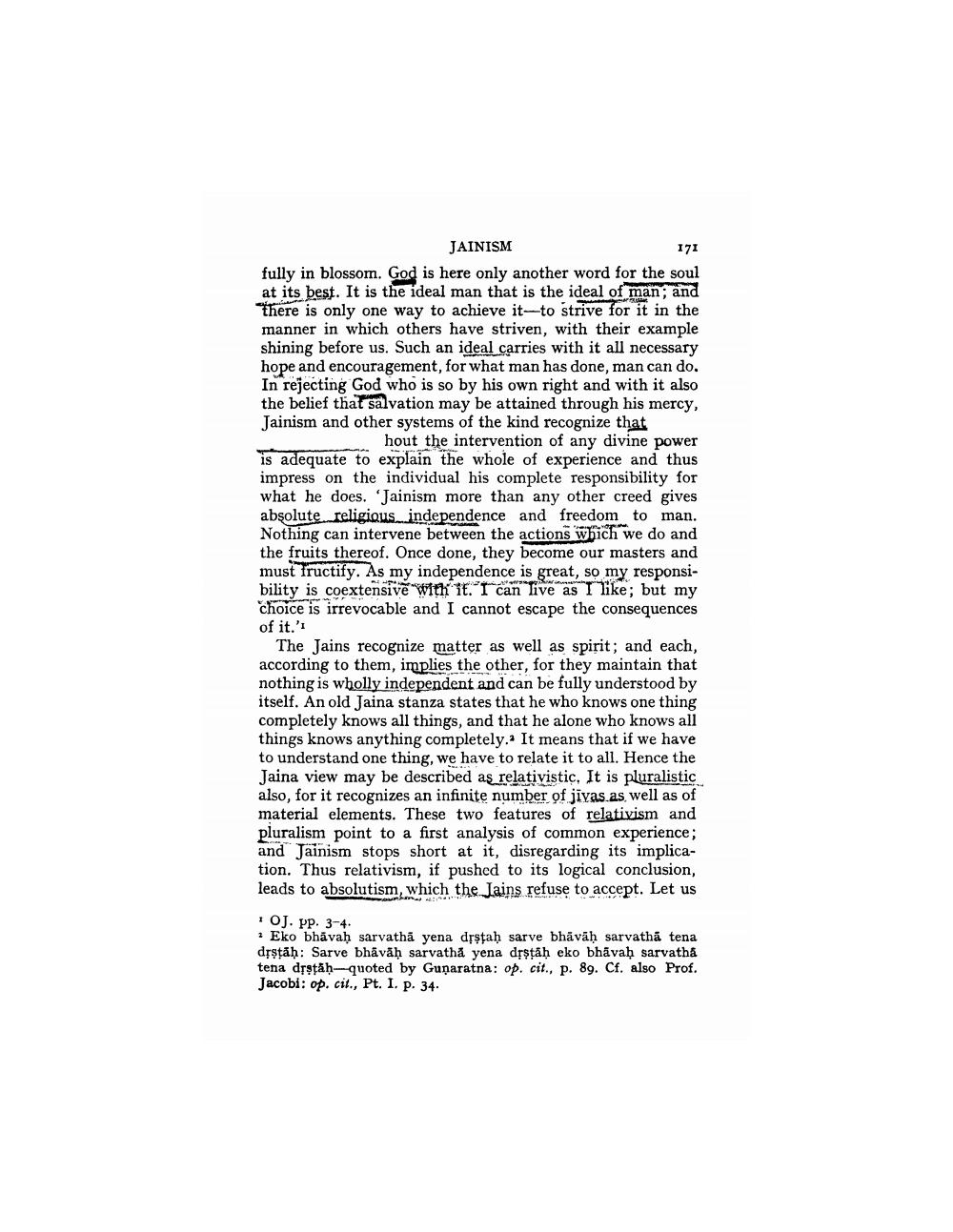________________
JAINISM
171 fully in blossom. God is here only another word for the soul at its best. It is the ideal man that is the ideal of man; and there is only one way to achieve it-to strive for it in the manner in which others have striven, with their example shining before us. Such an ideal carries with it all necessary hope and encouragement, for what man has done, man can do. In rejecting God who is so by his own right and with it also the belief that salvation may be attained through his mercy, Jainism and other systems of the kind recognize that
hout the intervention of any divine power is adequate to explain the whole of experience and thus impress on the individual his complete responsibility for what he does. Jainism more than any other creed gives absolute religious. independence and freedom to man. Nothing can intervene between the actions which we do and the fruits thereof. Once done, they become our masters and must fructify. As my independence is great, so my responsibility is coextensive with it. I can live as I like; but my choice is irrevocable and I cannot escape the consequences of it.'
The Jains recognize matter as well as spirit; and each, according to them, implies the other, for they maintain that nothing is wholly independent and can be fully understood by itself. An old Jaina stanza states that he who knows one thing completely knows all things, and that he alone who knows all things knows anything completely. It means that if we have to understand one thing, we have to relate it to all. Hence the Jaina view may be described as relativistic. It is pluralistic also, for it recognizes an infinite number of jivas.as well as of material elements. These two features of relativism and pluralism point to a first analysis of common experience; and Jainism stops short at it, disregarding its implication. Thus relativism, if pushed to its logical conclusion, leads to absolutism, which the Jains refuse to accept. Let us
1 OJ. pp. 3-4
* Eko bhāvah sarvathā yena drstaḥ sarve bhāvāḥ sarvathā tena drstāḥ: Sarve bhāvāḥ sarvatha yena drstāḥ eko bhāvaḥ sarvatha tena drstāḥ-quoted by Guņaratna: op. cit., p. 89. Cf. also Prof. Jacobi: op. cit., Pt. 1. p. 34.




